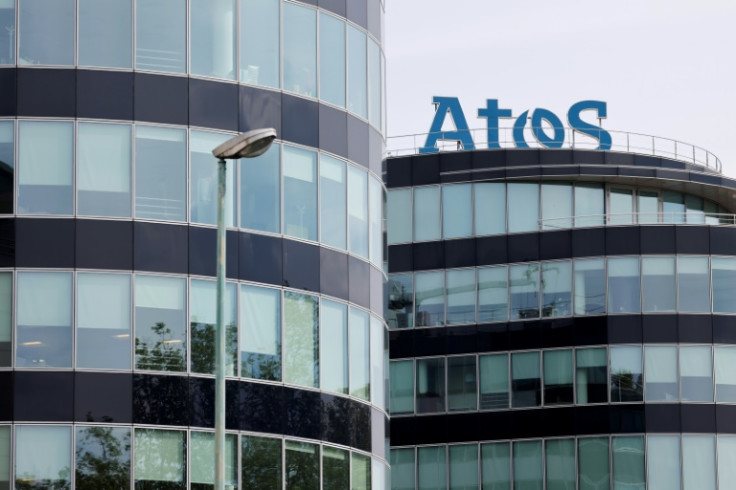
Struggling French tech group Atos, an Olympics partner and key French defence contractor, said Monday it would make a decision on financial restructuring offers by May 31.
Atos -- which runs supercomputers for France's nuclear deterrent, holds contracts with the French army and is the IT partner for the Paris Olympics -- is sagging under almost five billion euros ($5.4 billion) of debt.
The group said last week it now needs 1.1 billion euros in cash to stay afloat in the 2024-2025, up from a previous estimate of 600 million euros. It is also seeking to slash its debt by 3.2 billion euros.
Atos said in a statement on Monday that its board had received four financial restructuring offers on Sunday.
The proposals were made by US investment firm Bain Capital, Czech billionaire Daniel Kretinsky's Equity Investment, top shareholder Onepoint, and a group of bondholders and banks.
Atos said it had rejected Bain Capital's offer but would work with its creditors to choose one of the other proposals by May 31, with the aim of reaching a final restructuring agreement by July.
The Olympics begin on July 26 but Atos has insisted that its financial woes would not disrupt its operations during the Games, for which it will provide real-time results and manage more than 300,000 accreditations.
"We will now work with our financial creditors to find a solution by May 31 that will be acceptable to them and consistent with the parameters we have shared," Atos chief executive Paul Saleh said.
"I am confident that a final agreement can be reached by the July target that would assure the continuity of operations to our clients and be in the best interest of Atos' employees, clients, suppliers, creditors, shareholders and other stakeholders," he added.
The group warned that any agreement "will likely entail radical changes in the capital structure of the company" and the issuance of new shares that will greatly reduce the stakes held by existing shareholders.
Atos also said it was in talks with the French state over its plans to acquire strategically-important company activities, including advanced computing, "mission-critical systems" and cybersecurity products.







